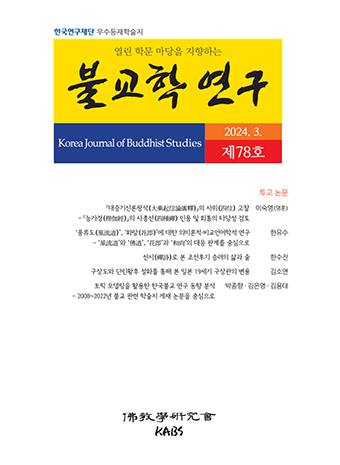Abstract
References
Sorry, not available.
Click the PDF button.
Information
In the 21st Century, the most urgent task is to achieve the reconci liation and unification of Korea.The Korean peninsula is about the only place that remains to be divided. Still, some would ask whether the unification the only answer. Current trend of the world as a response to the Globalization is to form regional/ cultural union. European Union, was initially formed upon the basis of the econo mic understanding, however, it is evolving into a holistic European community. This trend extends to North American Free Trade Agree ment (NAFTA), and with Chinese community in Asia. In the era of regional cooperation, the South Korea and Japan are also moving towards seeking regional cooperation despite the unresolved historical hurts. Hence, even by looking at such trend, the unification of Korea should be realized promptly.The Inter-Korean Summit has provided us with a new prospect for the unification. It is a missed opportunity since 1994 upon the death of Kim Ilsung. Had we responded accordingly at the time, it could have avoid a massive famine death of three millions of people, together with refugees crisis in China. The reconciliation and cooperation of the North and South Korea is the most important issue in the history of the nation. The history has to be recovered for it has been altered and omissions been made during the course of dissemination through war and particularly after the divi sion of the Korean peninsula. The reconciliation process should begin from the understanding and respect from each other at both ends. Understanding not only how they are suffering from the crisis, but the history, cultural differences and value system. The utmost objective has to be focused on the 20million ordinary North Korean people. To secure the Right to survive of the North Korean people, as the economically developed nation, at least 0.1% of the Gross Domestic Product of South Korea should go toward food, medical aid, fertilizers for farming. Overlooking the current issue at the moment would cost even more social complication in future post unification. Thus, the economic co-operation should proceed in terms of mutual agreement, but with the Humanitarian Assistance, it should come about unconditionally and most immediately.Buddhism is summed up to two major factors, that is, wisdom and teachings of compassion. Therefore, role of Buddhism is to lead the humanitarian assistance, participation of peace movement and preser vation and sustaining the tradition and cultural heritage. Principal Zen Master, JungTo Society Chairperson, Good Friends: Centre for Peace, Human Rights and Refugees Chairperson, Join Together Society (JTS)
Click the PDF button.
- Publisher :Korean Association of Buddhist Studies
- Publisher(Ko) :불교학연구회
- Journal Title :Korea Journal of Buddhist Studies
- Journal Title(Ko) :불교학연구
- Volume : 2
- No :0
- Pages :55~75


 Korea Journal of Buddhist Studies
Korea Journal of Buddhist Studies






